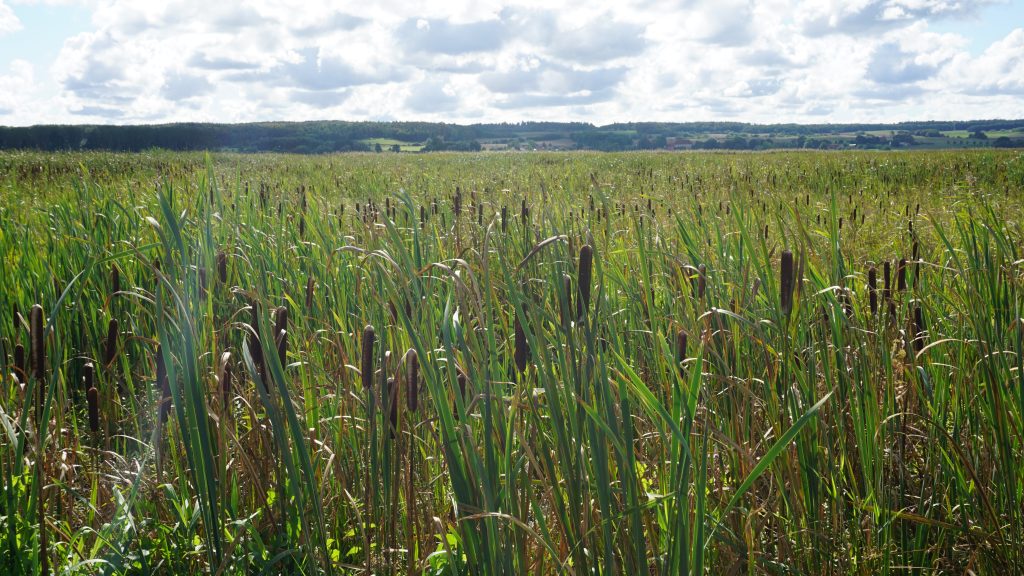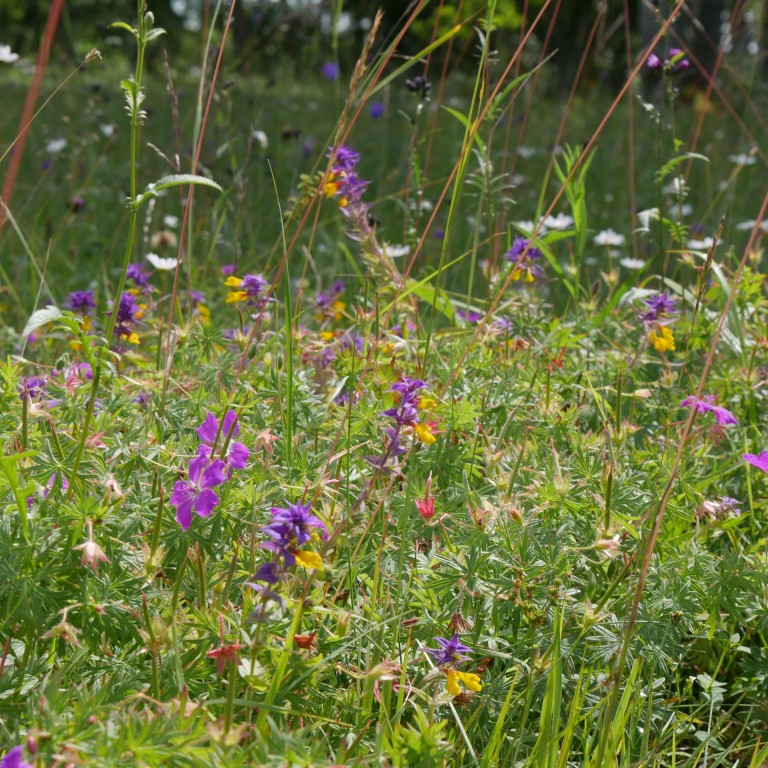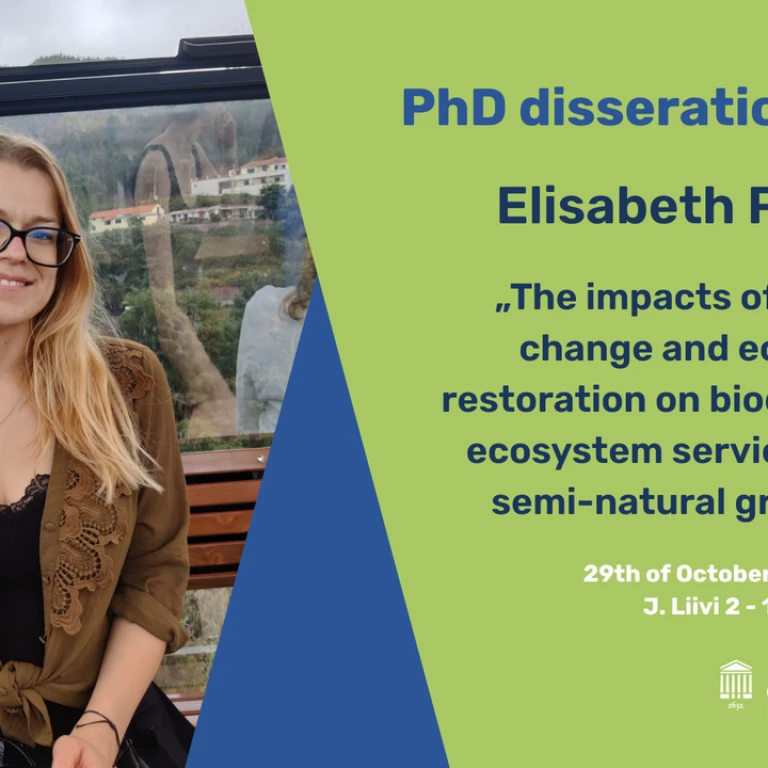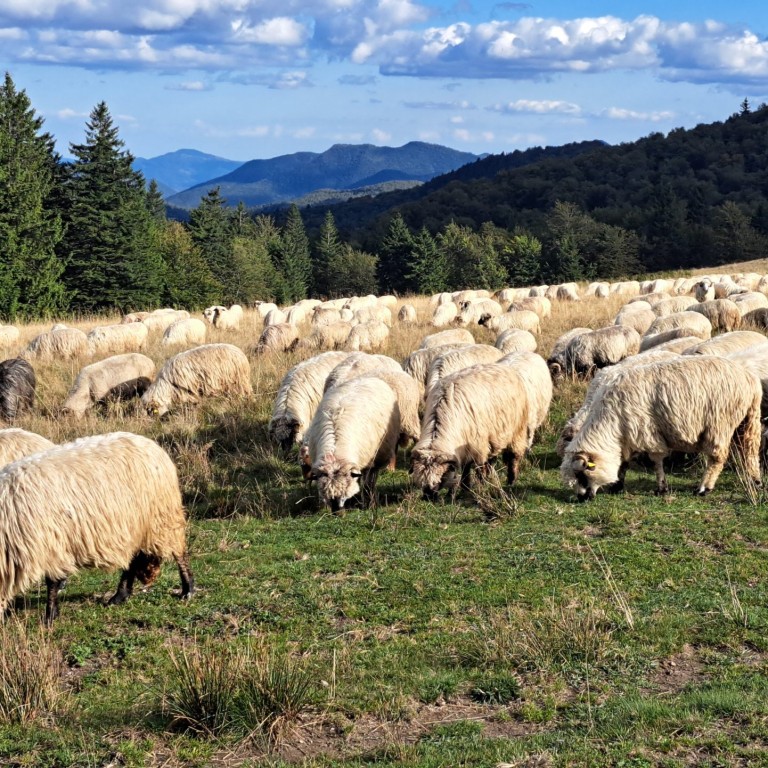
During the study visit, activities related to various wetland farming projects were presented. In Germany, many wetlands have been drained for agricultural purposes and now attempts are being made to restore them and find solutions on how to continue to use such areas. For example the projects will study the cultivation of Phragmites, Typha, Sphagnum and grazing with water buffalo in wetlands. For production in the market, Phragmites has proven itself (roofs, drinking straws, insulation), the rest is in the testing stage. At the moment most of the Phragmites is imported. Typha is seen as a potential building and insulating material, but there were also challenges in growing Typha: by the time of harvesting, Typha is like cotton wool and diferent parts of it need to be processed differently, but the technology for harvesting different parts is still under development. The cultivation of Sphagnum is also being experimented, it is used in horticulture as a growing medium. In wet meadows, grazing with water buffaloes has been successful because they are not demanding: they go to wetter places than cattle (claws are adapted), eat lower quality vegetation than cattle (prefer sweet plants such as Phragmites, Typha, but also eat Salix), and do well in German winter conditions.
At the moment mainly small producers are willing to test the restoration work in their areas. Larger scale use of wetland farming requires an agricultural policy that makes farming in these areas beneficial for farmers and landowners well.



